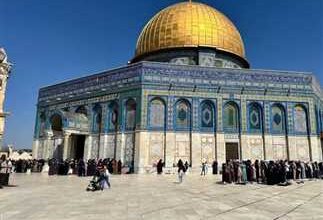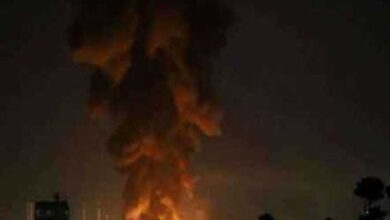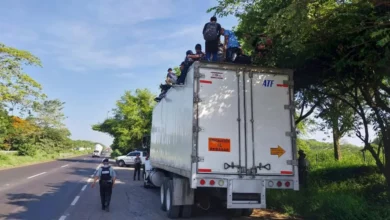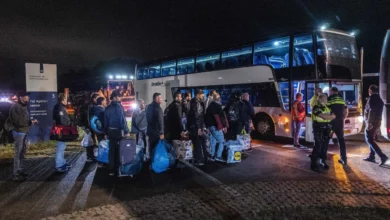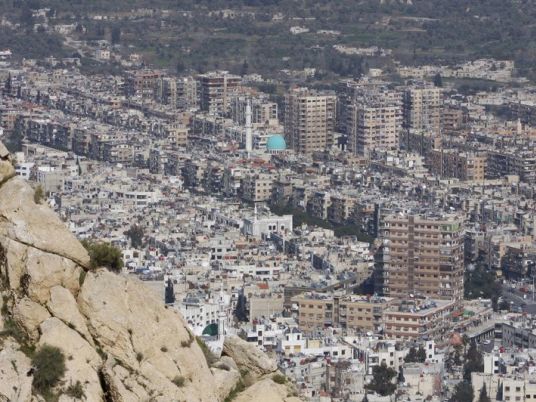
Hundreds of frightened Syrian evacuees were on the move again Friday after being blocked for 48 hours at a transit point where a bomber killed dozens of their fellow townspeople.
Ten of the 45 buses carrying civilians and loyalist fighters from the besieged government-held towns of Fuaa and Kafraya left the marshalling area in rebel-held Rashidin, the Syrian Observatory for Human Rights said.
Dozens of armed rebels were guarding the buses at Rashidin for fear of another attack.
All of the 11 buses evacuating civilians and fighters from Zabadani and two other rebel-held areas around Damascus were also on the move, according to the Observatory, a Britain-based monitoring group.
The buses from Fuaa and Kafraya entered second city Aleppo, under full government control since December, Observatory chief Rami Abdel Rahman told AFP
The buses from Zabadani and surrounding areas headed for rebel-held Idlib province in the northwest.
A total of 3,000 evacuees left their homes in Fuaa and Kafraya at dawn on Wednesday as part of a deal under which residents and fighters are also being evacuated from the rebel-held areas surrounded by government forces.
But the evacuees were forced to spend two nights in their buses at the marshalling area after last-minute disagreement over the release of prisoners held by President Bashar al-Assad's government.
It was unclear on Friday if the prisoners had been freed.
The evacuations began last week but were delayed after Saturday's suicide car bombing killed 126 people, 68 of them children, at the transit point in Rashidin.
Attack Widely Condemned
Saturday's attack was one of the deadliest since the start of Syria's six-year civil war and was widely denounced for targeting civilians.
"Someone pretending even to distribute aid and attracting the children produced that horrific explosion," UN Syria envoy Staffan de Mistura told reporters in Geneva.
According to witnesses, a vehicle distributing bags of crisps to children exploded near the buses transporting the evacuees.
No group has claimed responsibility for the blast. The government blamed "terrorists" — a term it uses for all its opponents.
The evacuations mark the end of the first stage of a deal brokered by regime ally Iran and Qatar, a longtime supporter of Syrian rebel groups.
When the current phase of evacuations is complete, a total of 8,000 people should have left Fuaa and Kafraya in exchange for 2,500 civilians and rebels from opposition areas.
A second phase of the evacuations is to begin in June.
Assad's regime has presented evacuation deals as the best way to end Syria's war, which has killed more than 320,000 people and forced more than half the population from their homes.
The opposition says the evacuations amount to forced relocation after years of bombardment and siege.

